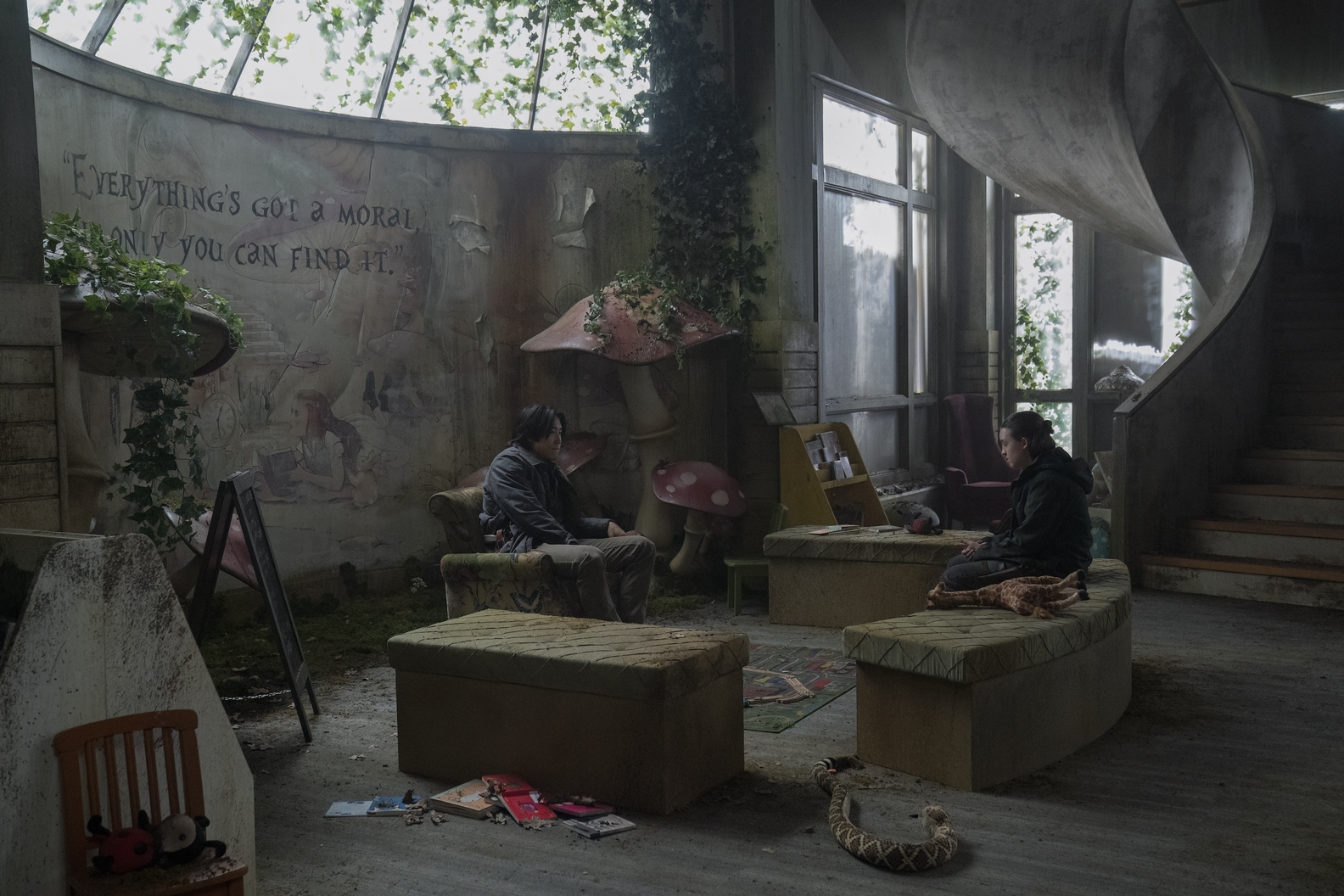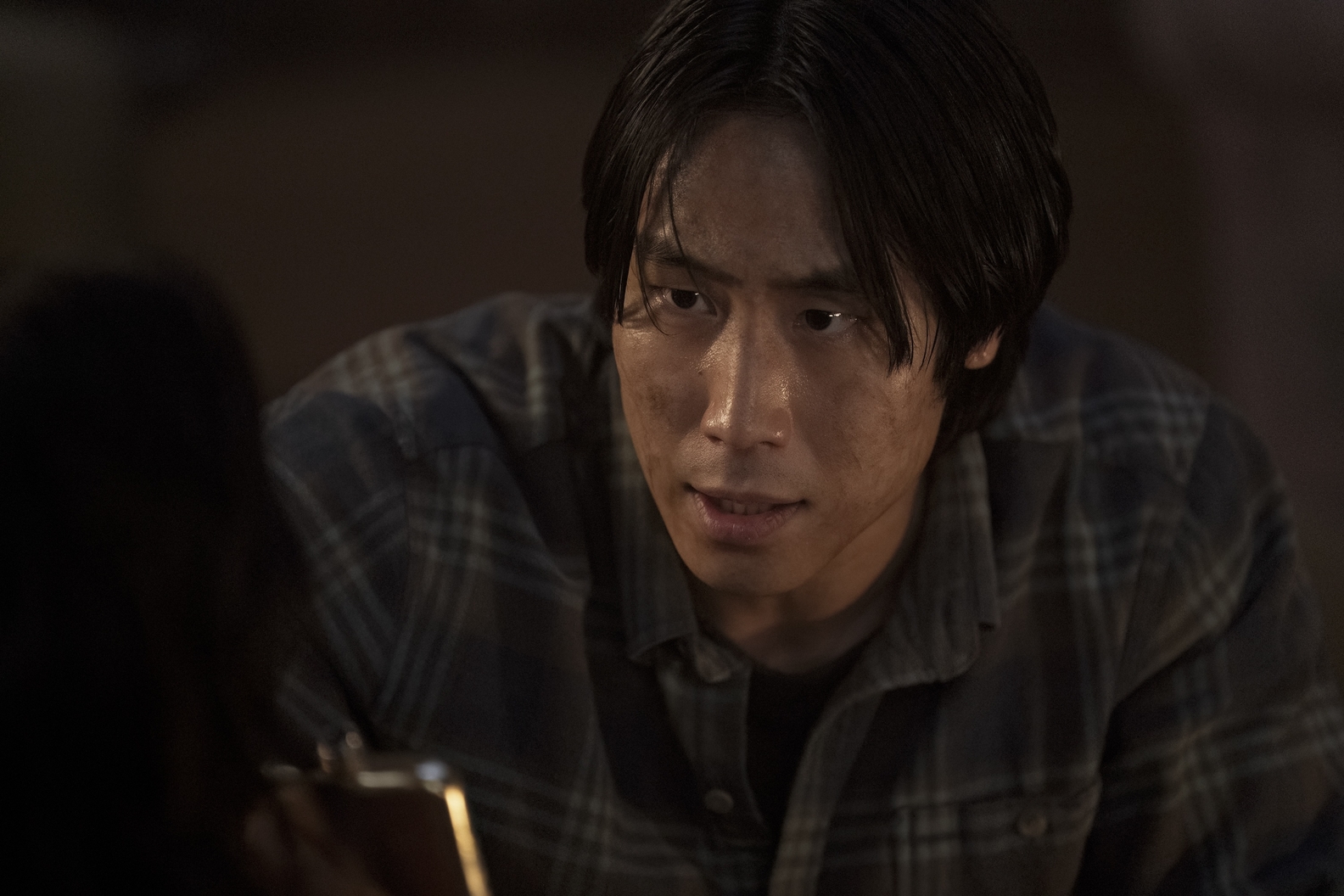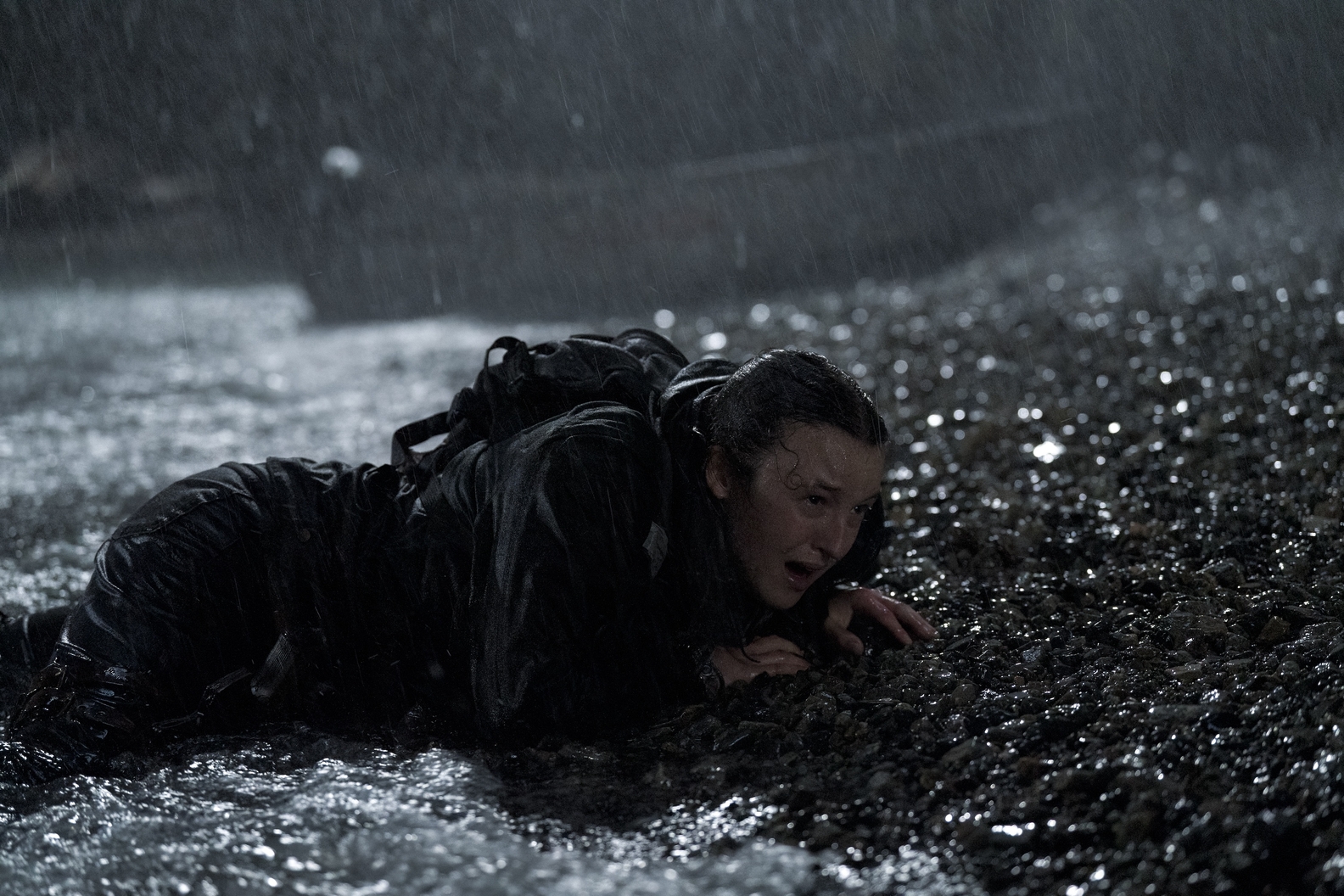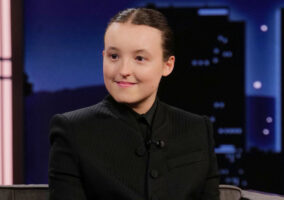
Okay, let’s start with this: barring a total plummet in quality, we’re in it to the end with The Last of Us, even if we have to grimly set our jaws to do so. That is perhaps not a great way to start off a review (or even a great way to approach a TV show), but the finale of the second season – not to mention the season as a whole – demonstrated some serious issues with the storytelling and characterizations, most of which are not likely to shift or change going forward. If you’re not a game-player and you signed on for the emotional story of a surrogate father protecting his tiny daughter from a world full of wolves, that’s just not what the show is about anymore and many viewers will have to decide if the darkness and truncated narrative are enough to keep them coming back.
Bella Ramsey, Isabela Merced, Kaitlyn Dever, Young Mazino — these have always been the reasons to stick with the story, no matter how dark it gets. The casting on this show has been very good, the acting has been excellent across the board, and we’ve enjoyed watching these actors navigate this world. But there’s always been a problem with The Last of Us as a television adaptation of a game series. The first is that the latter half of the story (i.e., the second game) made some bold narrative and game-playing choices that were never likely to fully translate to a passive watching experience. The second is that darkly grim gameplay simply doesn’t work for the kind of storytelling that requires a week’s wait between installments and then several years of waiting between seasons. If you’re playing these characters in a game, you can see it through to the end, no matter how dark it gets, at whatever pace appeals to you. But after this finale, we have no doubt at all that a whole bunch of non-gameplaying viewers are wondering if they really want to wait two years to find out Ellie’s fate, especially after she became such a deeply unpleasant character to watch, not to mention such an unlikely one.
Certainly, credulity shouldn’t be placed too high on a list of criteria for a show about mushroom zombies. And there are times when the show’s overt homage to gameplay can be kind of fun. Playable game characters are supposed to be somewhat superheroic in their actions, if only for their ability to get over dying. But again, these tropes and narrative structures don’t always translate to television, and everything that happened to Ellie once she hopped on that boat — nearly perfectly piloting it through a violent storm at night, swimming fully clothed and loaded down through the ocean, then getting captured and hanged, then escaping, then finding another boat, expertly piloting it, and then stumbling upon the exact people she needed to find within seconds of entering a dark, large, unfamiliar building — was so ridiculously unlikely that it felt silly. All through these poorly staged scenes, we kept flashing back to Nick Offerman warbling Linda Ronstadt and wondering how the hell this could be the same show.

We’ve never been particularly hung up on whether the protagonist of any story is a likeable person. We tend to be more drawn to flawed protagonists than likeable ones. Joel Miller was a flawed protagonist who wound up doing a terrible thing out of love, which allows the audience to wrestle with his actions and fate. Ellie, on the other hand, is skating up to the line of pure psychopathy and aside from the flashbacks to happier days this season, virtually every one of her scenes with any character other than Dina have been about her acting like a total asshole to everyone around her. Again, that’s fine in isolation. Her anger has always been understandable and her lack of social graces fairly well explained and established. Even so, there’s a certain dull repetitiveness to watching her yell at everyone and repeatedly do very stupid things that keep putting people around her in danger. Jesse would be alive and Dina would be happily and healthily watching her belly grow back in Jackson if Ellie hadn’t been so awful. Which we’ll stress again: that’s fine in and of itself, but there have been way too many scenes of her where the viewer simply can’t get a handle on how she’s acting. Put it this way: we can deal with Ellie being an asshole. We can deal with her being reckless. We can even accept that her actions are causing deep harm to the people around her. You can do all of that, but we feel you are definitely going to lose the audience when you make her kill a pregnant woman and watch her bleed out while she begs for her baby’s life and then expect them to wait around a couple of years to see what happens next.
There’s also the issue that, while we recognized the guy she killed after only a second, we couldn’t peg the woman in the scene as one of the people in Abby’s party because they really only appeared briefly and then dropped out of the story for like five episodes. For most of that scene we thought Ellie killed a bystander in a really horrible manner. This is an issue with pacing and also perhaps an issue with structure, as writers/creators Craig Mazin, Neil Druckmann, and Halley Gross struggle to adhere as much to the game as the fans will accept while still making narrative choices in order to fit a television serial. Somehow they settled on splitting the difference (introducing Abby’s motivations right from the jump but sticking to the bifurcated story structure of the game) and we’re not sure they managed to make either camp happy, let alone both. Non-gaming viewers are stuck watching characters they don’t really know, like Jeffrey Wright’s Isaac or the two people Ellie killed (yes they have names and we could easily look them up but the point is that we should have known them both well if the story wants us to react to their killings) having intense conversations about other characters they don’t know, about things they’re going to have to wait a long time to see, while gameplayers are frustrated by the loss of the twist revealing who Abby is. Worse, the chopped-up narrative prevents the viewer from engaging with the characters they like and care about. Dina was sidelined in this episode, which is a mistake when you’ve got Isabela Merced on tap, and so much focus was put on Jesse after ignoring him for so long that his death couldn’t possibly have been more clumsily foreshadowed. “I just want to be here for my kid” is pretty much “I’m retiring in a week” or “I just bought a boat” in terms of character motivations. As a viewing experience, none of this is particularly enjoyable or rewarding. And we haven’t even touched on the news that the creators are floating a potential fourth season.

Unfortunately, even with the long lag time between seasons, it’s clear that there will be no course-correcting on the issues with the pacing. We’re probably going to have to sit through Abby’s version of events before we return to the cliffhanger of this episode and while that might have been frustrating for a player, we’re concerned that it’s asking too much of a lot of viewers.
[Photo Credit: Liane Hentscher/HBO]
Lindsay Lohan Talks FREAKIER FRIDAY, Motherhood and New Beauty Line for ELLE Magazine Next Post:
RUPAUL’S DRAG RACE ALL STARS: Eight Ball
Please review our Community Guidelines before posting a comment. Thank you!



